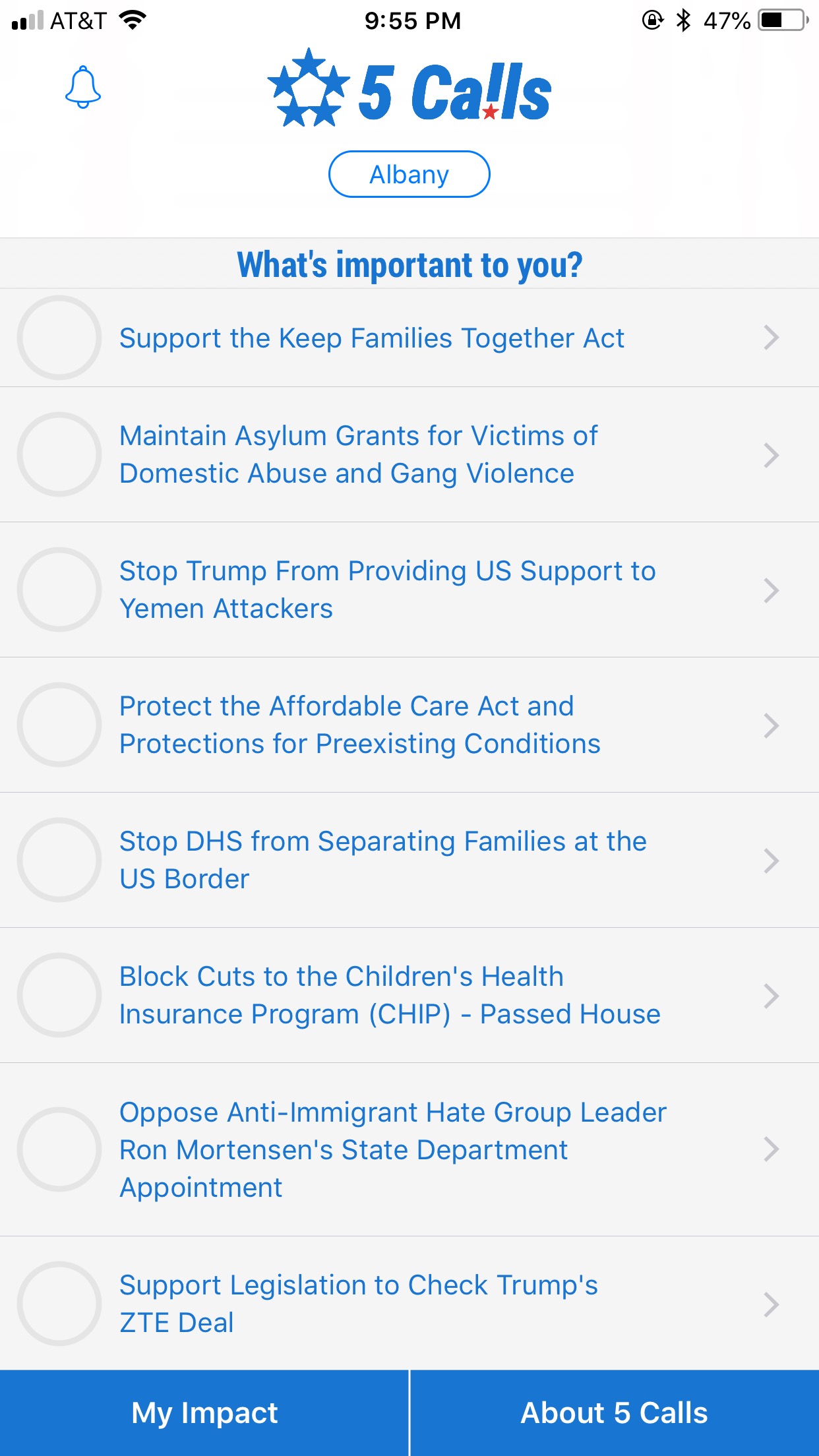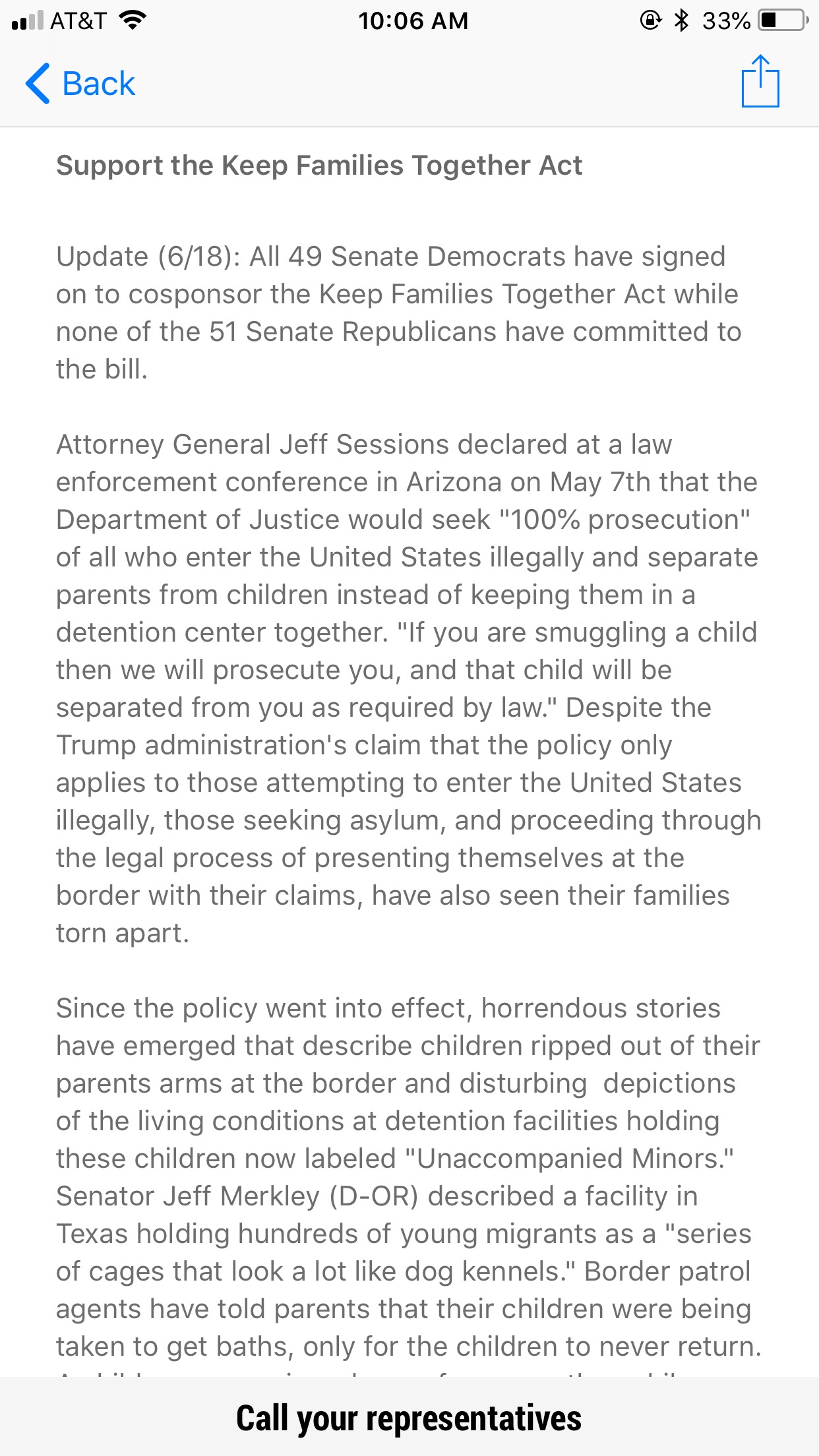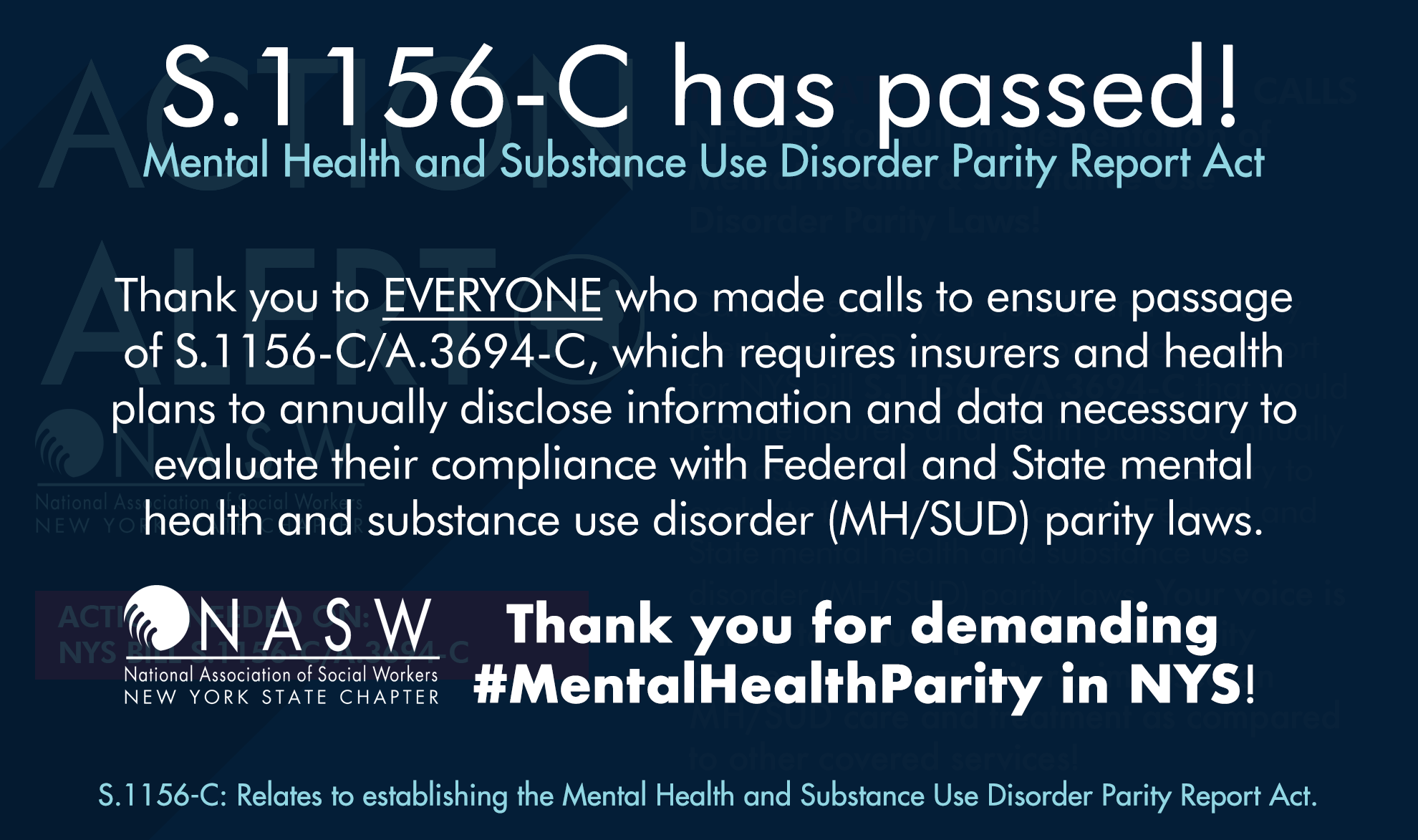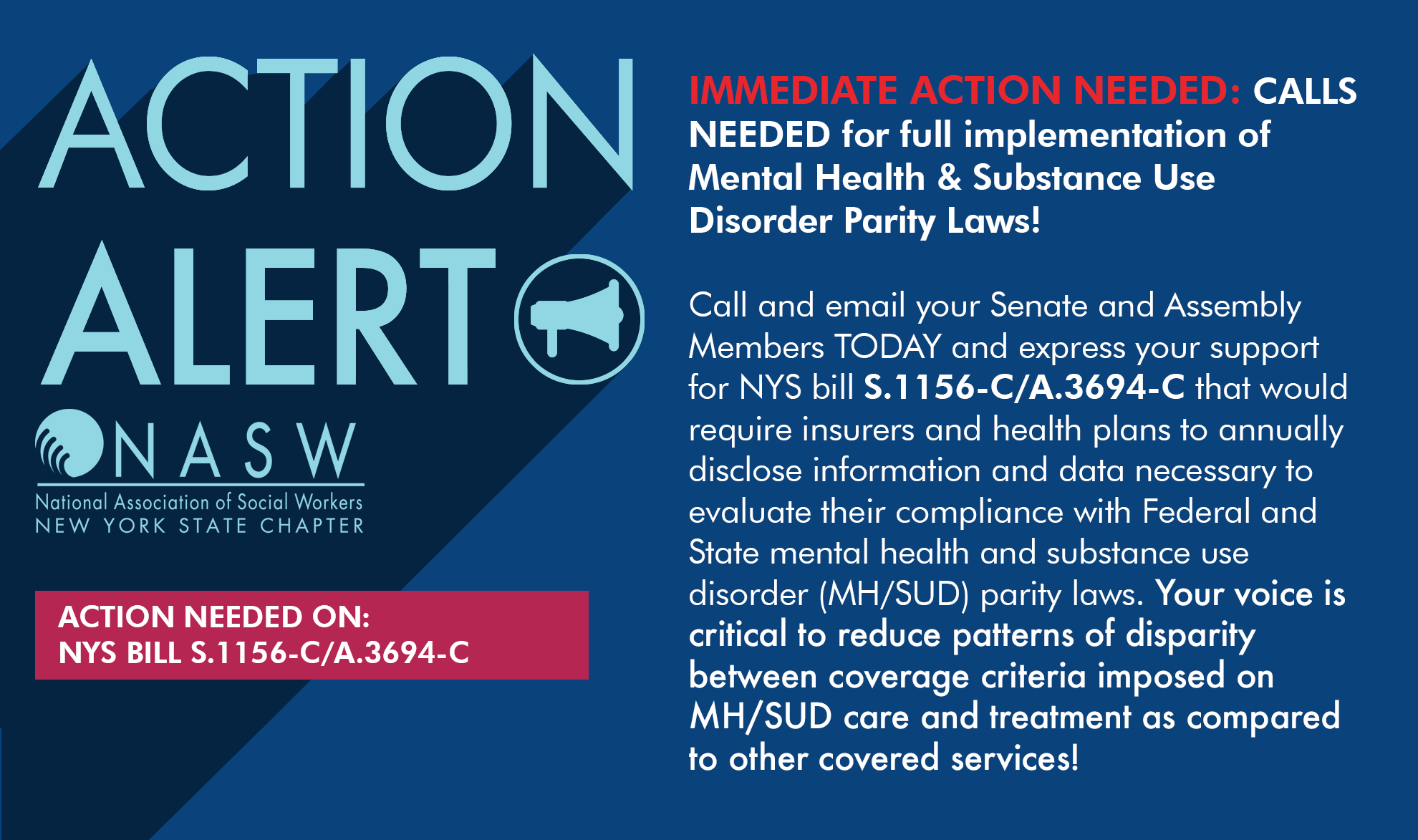(6/23) UPDATE: The National Association of Social Workers (NASW) has released a statement with concerns over President Trump’s immigration executive order. NASW demands the president present a more humane, coherent plan that also addresses the treatment of more than 2,300 children who are already detained. These children continue to be exposed to trauma that has life-altering implications. Read the full statement here.
(6/20) UPDATE: It has been reported that President Trump has signed an executive order to stop family separation at the border. NASW has announced they will release a statement in response to President Trump’s executive order.
(6/20) UPDATE: Families Belong Together, a nationwide advocacy day to oppose the policy of separating immigrant families at the border and detaining children apart from their parents, has been planned for Saturday, June 30. To find an event near you, visit https://www.familiesbelongtogether.org/
NASW-NYS Calls for End of Separating Children from Migrant and Asylum-Seeking Families
The National Association of Social Workers – New York State Chapter (NASW-NYS) emphatically condemns the Trump administration’s practice of separating children from migrant and asylum-seeking families entering the United States.
The reason for these separations is a zero-tolerance policy, announced last month by the Trump administration, for parents who are accused of undocumented border crossing. Since April 19, 2018, the Department of Homeland Security has separated well-over 2,000 children from their families.
The Trump administration’s practice is in direct violation of our Code of Ethics. As social workers, we are guided by a set of ethical principles that are based on the profession’s core values including service, social justice, dignity and worth of the person, and the importance of human relationships.
Strengthening families and providing family support are priorities of the social work profession. The family is the primary socializing agent, economic unit, and the mental health resource for its members, young and old (Carr & Springer, 2010). Our profession believes that removing a child from his or her parents should happen in extreme cases only, and the focus should be on family preservation and services to strengthen the family unit. As such, we are calling on the administration to keep families together in community-based settings while their immigration proceedings are pending.
The Trump administration has stated that its goal in separating children from their families is to deter undocumented border crossings. NASW-NYS would contend that using children as leverage to punish their parents is unconscionable, both with respect to the health and well-being of the children and as treatment of migrants and asylum seekers. The Code of Ethics maintains that we must preserve the dignity and worth of the person, treating each other in a caring and respectful fashion, mindful of individual differences, and cultural and ethnic diversity. It is a practice that is applied to anyone regardless of race, religion, ethnicity, or immigration status.
Even when children are separated from parents in a non-forceful way, research has shown that they have a higher risk of anxiety and depression. It is well documented that adverse childhood experiences (ACEs), such as separation from family and incarceration, can contribute to lifelong negative effects/psychological and emotional trauma including post-traumatic stress disorder (PTSD), anxiety, and depression, and are precursors of negative health and education outcomes later in life (Dube, Cook, & Edwards, 2002). As social workers, we know from experience the perverse impact of removing a child’s primary caregiver, particularly during the early stages of childhood development. Furthermore, we have yet to hear confirmation from the administration that children separated from their families will be reunited.
For the reasons stated above, we urge ALL Chapter members to call your representatives in Congress and let them know that you strongly oppose the Trump administration’s practice of separating children from migrant and asylum-seeking families entering the United States, and demand the immediate reunification of families.
Here’s where to start:
Contact your representatives in Congress to voice your disapproval. There are currently several bills being pushed to fight the zero-tolerance policy, the most widely-circulated being the Keep Families Together Act, introduced by Senator Dianne Feinstein (D-Calif.).
Encourage others to call their representatives and demand an end to separating children from their families at the border.
- Download the 5 Calls App for a phone call script on the following issues:
- Support the Keep Families Together Act
- Stop the Department of Homeland Security from Separating Families at the US Border



(Screenshots of the 5 Calls App)
There’s more. If you are looking for additional resources and ways to get involved, please visit the following organizations:
- Refugee and Immigrant Center for Education and Legal Services (RAICES) is a Texas-based nonprofit organization dedicated to providing immigrant families and refugees with affordable legal assistance. They also offer an online toolkit to help inform people about family separation and how to raise awareness. UPDATE: They are currently accepting donations and volunteers at its website. In addition, the #postcards4families campaign will donate $5 to RAICES for every postcard kids write to help the separated immigrant children. – https://www.raicestexas.org/
*URGENT* RAICES needs volunteer translators who speak Meso-American indigenous languages (e.g.: zapotec, nahua, quich’e, maya, mixe, mixteco – not Spanish). Do you know anybody? They don’t need to be in Texas, or even in the US. They can translate remotely. Email volunteer@raicestexas.org.
- Kids in Need of Defense (KIND) works to ensure that no child appears in immigration court alone without representation – http://www.supportkind.org/
- Young Center for Immigrant Children’s Rights advocates for the safety and well-being of unaccompanied kids arriving in the United States. They recently announced a project specifically dedicated to helping children separated from their parents at the border. UPDATE: The organization is training adults who want to become “child advocates” who will work one-on-one with unaccompanied immigrant children while they are subject to deportation proceedings. – https://www.theyoungcenter.org/
- Families Belong Together is a coalition opposing the separation of families at the border and is organizing a series of rallies and events across the country. Update: Use this to find events and rallies not happening on June 30 – https://familiesbelong.org/
- U.S. Committee for Refugees and Immigrants (USCRI) is national, non-profit, nonpartisan refugee resettlement and advocacy organization that has served and defended the rights of refugees, asylum seekers, and internally displaced persons. Based in Washington, D.C., it has six field offices including one in Albany, NY, and partners with local community-based agencies across the nation to help thousands of refugees build new lives in the U.S. each year – https://refugees.org
- Asylum Seeker Advocacy Project works to prevent the deportation of asylum-seeking families fleeing violence. The group accepts donations and asks people to sign up for volunteer opportunities here. – https://asylumadvocacy.org/
- Together Rising is accepting donations to help the helpers on the ground. Donations will go to the lawyers and social workers working with these families. You can also learn more on how your money is working by clicking here. – https://togetherrising.org
- NATIONWIDE MARCH SCHEDULED FOR JUNE 30th: Families Belong Together (#FamiliesBelongTogether), a nationwide advocacy day to oppose the policy of separating immigrant families at the border and detaining children apart from their parents, has been planned for Saturday, June 30. To find an event near you, visithttps://www.familiesbelongtogether.org/
UPDATE: The Texas Tribune has compiled a list of organizations that are mobilizing to try and help children that have been separated from their parents at the Texas-Mexico border. Click here to read.
If you have resources to share with the membership, please let us know. If you have any questions or are looking for ways to get involved, feel free to contact the Chapter at info.naswnys@socialworkers.org or at 518-463-4741.
References
Carr, D., & Springer, K.W. (2010). Advances in families and health research in the 21st century. Journal of Marriage and Family, 72, 743-761.
Dube, S.R., Cook, M.L., & Edwards, V.J. (2002). Health-related outcomes of adverse childhood experiences in Texas. Preventing Chronic Disease, 7(3):A52. Retrieved from https://www.cdc.gov/pcd/issues/2010/may/09_0158.htm
Social Workers, N.A. (2013). The Adverse Childhood Experiences (ACE) Study: Implications for Mothers’ & Children’s Exposure to Domestic Violence. Retrieved from https://www.socialworkers.org/assets/secured/documents/practice/children/acestudy.pdf
Workers, N. A. (2017). NASW Code of Ethics (Guide to the Everyday Professional Conduct of Social Workers). Washington, DC: NASW.






